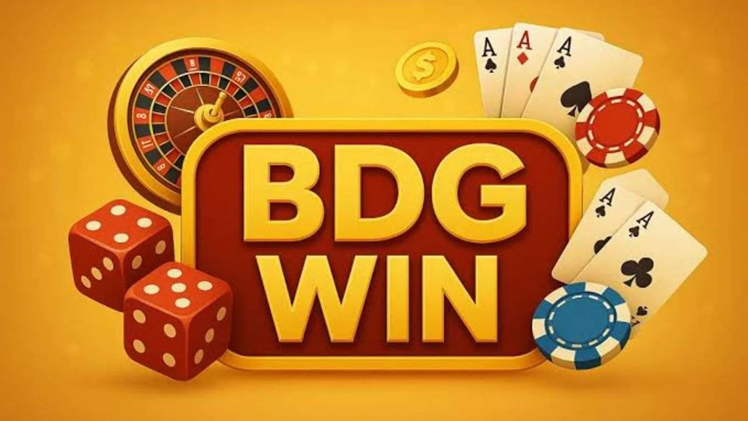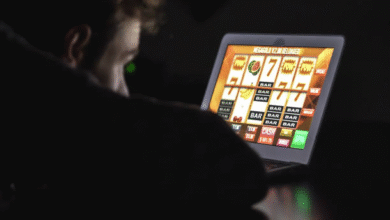The Psychology of BDG Win: How Players Get Hooked

BDG WIN and BDG GAME have taken India’s online gaming scene by storm in 2025, attracting millions of players who are captivated by the thrill of colour-based betting. Beyond the mechanics of predicting Red, Green, or Black, there is a deep psychological layer that explains why players keep coming back. Understanding this psychology is essential for both players seeking to manage their engagement and those aiming to maximize strategic gains. This article explores the behavioural, cognitive, and emotional factors that make BDG WIN addictive, and how players can leverage insights without falling into negative patterns.
The Appeal of Instant Gratification
One of the primary psychological hooks of BDG WIN is instant gratification:
- Immediate Results: Players receive results within seconds, which triggers a dopamine response.
- Small Wins, Big Feelings: Even modest wins provide a sense of achievement, encouraging continued play.
- Rapid Feedback Loops: Continuous rounds reinforce behaviour, creating habitual engagement.
This instant feedback mechanism keeps players psychologically engaged, making them more likely to return multiple times a day.
The Role of Uncertainty and Risk
The unpredictability of BDG GAME enhances its appeal:
- Variable Rewards: Winning is never guaranteed, but the potential reward is high, stimulating excitement.
- Random Streaks: Unpredictable streaks create suspense and anticipation.
- Perceived Control: Players often believe that patterns or strategies can influence outcomes, increasing engagement.
The combination of uncertainty and perceived control exploits the brain’s reward system, reinforcing addictive behaviour.
Cognitive Biases at Play
Several cognitive biases contribute to player engagement on BDG WIN:
- Gambler’s Fallacy: Belief that a streak is due to end, prompting players to place bets in anticipation.
- Confirmation Bias: Players remember wins that validate their strategies and forget losses.
- Illusion of Control: Belief that skill or pattern recognition can influence inherently random outcomes.
- Availability Heuristic: High-impact wins are more memorable, giving an inflated sense of probability.
Awareness of these biases is crucial for both strategic play and responsible gaming.
Emotional Drivers of Engagement
Emotions play a significant role in BDG GAME engagement:
- Excitement and Thrill: The unpredictability of outcomes triggers adrenaline and dopamine.
- Social Reinforcement: Sharing wins with friends or community boosts self-esteem.
- Fear of Missing Out (FOMO): Seeing others win can drive players to participate frequently.
- Relief from Losses: Recovering from a small loss with a subsequent win provides emotional satisfaction.
Emotional highs and lows create a compelling feedback loop, making players return consistently.
Habit Formation and Loop Mechanics
The design of BDG WIN encourages habitual behaviour:
- Trigger: Notifications, time of day, or social influence prompts play.
- Action: Players place bets, engaging in the core game mechanic.
- Reward: Wins, near-wins, and streaks provide psychological rewards.
- Reinforcement: The cycle repeats, strengthening habit formation.
Understanding these loops allows players to predict engagement patterns and develop disciplined routines.
Social Influence and Community Dynamics
Community engagement amplifies the psychological appeal:
- Forums and Groups: Players share wins, strategies, and tips, creating a sense of belonging.
- Leaderboards: Seeing top players’ success can motivate increased participation.
- Collaborative Tracking: Community efforts in trend analysis create shared excitement.
- Social Validation: Recognition from peers reinforces continuous play.
The social dimension reinforces engagement and encourages players to maintain consistent activity.
Reward Structures and Their Psychological Impact
BDG WIN employs reward structures that enhance psychological investment:
- Variable Payouts: High potential payouts for rare colours maintain excitement.
- Micro-Wins: Frequent small wins keep players motivated.
- Streak Bonuses: Observed streaks increase perceived control and engagement.
- Progress Indicators: Visual cues of progress and performance encourage continued participation.
These reward structures are carefully designed to maximize engagement without guaranteeing wins.
Strategic Use of Psychology for Better Play
Understanding player psychology can also be leveraged strategically:
- Controlled Betting: Use knowledge of cognitive biases to avoid impulsive losses.
- Pattern Analysis: Recognize how streaks affect both personal and community betting behaviours.
- Time Management: Schedule sessions to capitalize on focused engagement periods.
- Community Insight: Collaborate with peers to validate patterns and reduce risk.
Players who understand the psychological drivers behind their behaviour can play more strategically and responsibly.
Responsible Engagement Practices
While the psychological design of BDG WIN is engaging, responsible practices are essential:
- Set Time Limits: Prevent excessive play by scheduling short sessions.
- Budget Control: Define daily bankroll limits and adhere to them.
- Mindful Play: Recognize emotional triggers and avoid reactive betting.
- Take Breaks: Regular pauses help maintain perspective and prevent compulsive behaviour.
- Reflect and Adjust: Review performance and strategies to refine gameplay.
Responsible engagement ensures a positive experience without negative consequences.
Case Studies: Psychological Engagement in Action
Students
Students often engage during breaks, drawn by the instant gratification and excitement. By understanding streaks and cognitive biases, they can maintain profitable and controlled gameplay.
Working Professionals
Professionals integrate short sessions into their daily routines. They leverage psychological triggers strategically, focusing on pattern recognition and disciplined bets.
Home-Based Players
Players at home track outcomes over longer periods, balancing emotional highs with rational, data-driven strategies.
These examples demonstrate that understanding psychology is key to both engagement and profitability.
Technology and Psychological Amplification
Modern tools enhance psychological engagement on BDG WIN:
- Analytics Dashboards: Provide visual cues of streaks and trends.
- Mobile Alerts: Trigger engagement at optimal times.
- Community Platforms: Amplify social reinforcement and FOMO.
- Gamification Features: Track progress and achievements to maintain motivation.
Technology complements the psychological design, increasing user engagement and strategy potential.
Future Trends in BDG Win Psychology
- AI-Based Personalized Engagement: Algorithms may optimize notifications and gameplay suggestions based on individual psychology.
- Gamified Learning Tools: Simulated environments to train players in pattern recognition.
- Global Community Interaction: Broader player networks increase social reinforcement.
- Behavioral Analytics: Advanced insights into player psychology to enhance strategic play.
These trends suggest that psychological engagement will continue to evolve, making strategic understanding increasingly valuable.
Conclusion
The psychology of BDG WIN explains why players get hooked: instant gratification, uncertainty, cognitive biases, emotional rewards, habitual loops, and social influence all contribute to sustained engagement. Understanding these factors allows players to approach the game strategically, leveraging insights to make informed decisions while maintaining responsible play.
By recognizing how psychological drivers affect behaviour, players can balance thrill with discipline, transforming BDG GAME from a purely entertainment experience into a structured, strategic, and potentially profitable activity in 2025 and beyond.




